Investing in desalination stocks goes beyond generating passive income — it is also betting on global sustainability. But which water stocks are worth a closer look? Read our list of the top water desalination stocks to buy to find out.
Best Water Desalination Stocks
Veolia Environnement (NASDAQ: VEOEY)
Veolia Environnement is a French multinational company that invests heavily in essential utilities, such as drinkable water, and renewable energy in over 45 countries.
It also provides solutions that champion ecological transformation in the age of digitalization. Although Veolia offers many sustainable-centric services, one of its core products is wastewater treatment for industrial companies, including material recovery and reuse.
Veolia Environnement also introduces innovative desalination technologies that reduce microplastic water pollution now used by many European customers, such as Lucerne, Toulon University, and Aarhus.
Despite the consequences of the worldwide economic slump, which has been compounded by COVID limitations, Veolia’s 2022 has started out strong.
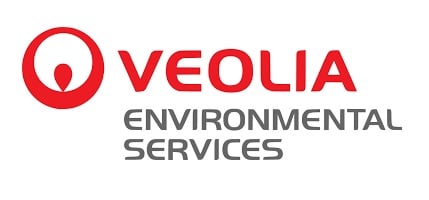
In terms of statistics, revenue increase reflects the first-ever merging of Suez assets (recent purchase). It also benefited greatly from strong market trends and the numerous innovations and added-value solutions it has produced over the years.
The company’s expansion was exceptionally strong at +14% in comparison to the combined sales of the new entity.
Because of its continued stringent cost control and the efficacy of its tariff indexation and hedging methods, the company’s results have grown significantly, with EBITDA of +7% and EBIT of +18%.
These factors could make investing in Veolia Environment lucrative, with Fortune Business Insights revealing that the global wastewater treatment market could grow to over $450 billion in 2028, mainly due to stricter environmental policies.
Energy Recovery Inc. (NASDAQ: ERII)
Energy Recovery Inc. doesn’t build desalination plants but manufactures devices that make reverse osmosis desalination and other water purification technologies more cost-effective.
It sells pressure exchangers that feature a micron-level clearance that efficiently transfers low and high-pressure fluids through the chambers, while the centrifugal pumps support multi-stage filtration systems.
These technologies can drive desalination companies’ production and energy costs down, hopefully allowing these businesses to pass on the savings to their customers.
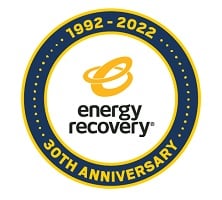
It also allows the business to take advantage of the growth of the desalination equipment market, which could achieve a compound annual growth rate of over 7% until 2028.
What made investors jump into this stock was its record-breaking 1st quarter. Despite the inflationary climate, the company not only produced record first-quarter sales of $32.5 million but also increased quarterly operating profitability by 34% year over year.
By the end of the forecast period, Energy Recovery’s revenues could hit around $22 billion, according to Grandview Research.
With innovations that can pave the way for the industry’s exponential growth, investing in Energy Recovery water stocks could be a solid play.
American Water Works (NYSE: AWK)
American Water Works is a multi-awarded company that provides wastewater services and distributes over a billion drinkable and desalinated regulated water daily to commercial, residential, and industrial customers in 24 states.
The largest publicly traded water company in the United States is also financially stable, consistently paying dividends for over a decade.
According to Entrepreneur, these dividends have been increasing by 10% for the past eight years. Its payout ratio is 20.98%, which could make AWK an excellent source of passive income.
A significant reason for investor confidence is expansion and infrastructure improvement.
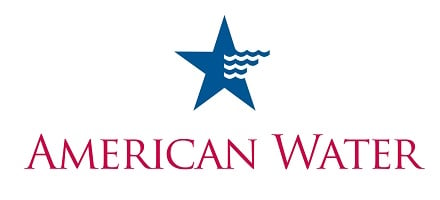
In February, New Jersey American Water acquired Bound Brook Borough’s wastewater collection system. In addition to its expansion, the company is investing $3 million in Pekin’s water system in Illinois.
The same subsidiary is also investing $1.4 million to change over 2,000 feet of aging main in the state to help rehabilitate the water infrastructure that serves over 100 communities.
California Water Service (NYSE: CWT)
The California Water Service is a large public utility company that provides unregulated and highly regulated water services to over 100 communities and 2 million people.
Although it has headquarters in San Jose, California (under Cal Water), it also serves other states like Hawaii, Washington, Texas, and New Mexico.
Investing in its water stocks could be attractive for many reasons. First, these states have huge populations (California alone is home to almost 6% of Americans), and the numbers will only increase due to migration and natural births.
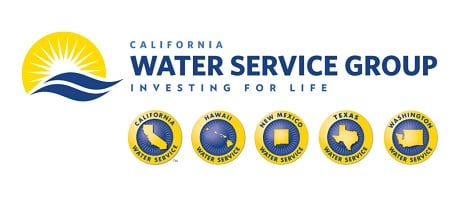
Further, water is a scarce resource in many of these areas due to frequent droughts and desert landscapes, so the demand for public utility water companies with sustainable approaches is high.
In terms of numbers, the company recently announced its 2022 first-quarter results, showing an increase of $4.1 million in net income and $5.2 million in operational revenue. While these are great numbers, these positives were offset by an increase in wage cost.
CWT possesses excellent liquidity and financial stability, which could make it a great long-term stock to invest in.
Xylem (NYSE: XYL)
One of the most popular water stocks is from Xylem, an American multinational company that serves over 100 countries, one of the largest of its kind in the world. It offers applied and infrastructure water solutions to the government, commercial, residential, and industrial sectors.
The primary strength of Xylem is the variety of its products and solutions, allowing customers to match their needs with its services.
For example, in its partnership with Dutch Dunea, Xylem has developed a unique advanced oxidation process that removes bromide from the drinking water and reduces micro contaminants by 90%.
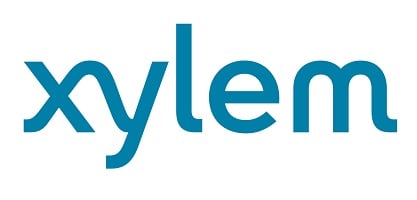
Its underwater vehicle under the YSI brand has innovatively helped Clear Lake researchers track and understand algal blooms in the area.
Regarding its financials, aside from the upcoming 30 cents per share dividend payout, the company continues to grow due to strong underlying demand. Xylem put its revenue up by $1.3 billion last quarter, 4% higher than last year.
The diversity of the offerings could be attractive to water users that need to balance sustainability with cost savings and efficiency.
Essential Utilities (NYSE: WRTG)
Under its Aqua brand, Essential Utilities offers wastewater treatment and drinking water distribution to its market of 5 million customers in ten states.
The consistent upgrade of its facilities and investments in innovative technologies also boosts its water production to over 85 billion gallons annually.
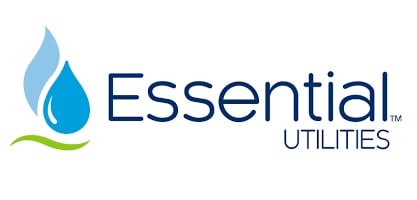
The company is also busy expanding its portfolio by acquiring other assets, which could make today an excellent time to invest in its water stock. These include Beaver Falls’ municipal wastewater system and Southern Oaks through its subsidiary Texas Aqua.
As for its earnings, Essential reported $199.4 million in net income in the first quarter of 2022, up from $183.7 million in the same quarter of 2021. For the period, earnings per share were $0.76, up 5.6% from $0.72 in the first quarter of 2021.
Essential Utilities is also well-known for its rigid quality control, increasing user and investor confidence. It runs a new, state-of-the-art laboratory that employs chemists and microbiologists who test daily water samples.
Consolidated Water Company (NASDAQ: CWCO)
Based in the Cayman Islands, Consolidated Water Company is one of the few publicly traded pure-play firms, which means its business revolves around one primary product: clean, desalinated water.
It runs a water treatment facility in the United States and production plants at its headquarters, the British Virgin Islands, and the Bahamas.
At first glance, it seems Consolidated Water’s solutions are severely limited compared to Economic Recovery and California Water Service, among others. However, investing in the pure-play company could still make sense.
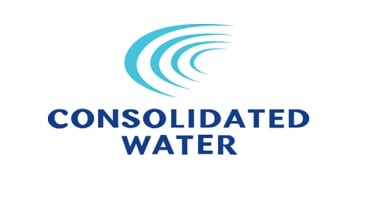
First, it means that the company can concentrate its resources and expansion on an in-demand commodity that generates millions of revenues annually. Second, it allows Consolidated Water Company to tap and grow its portfolio in underserved markets.
The company has been trending up for the past six months, hitting its highest share price at $14.16 this May, likely because of a certain report.
It was announced that the government’s (Cayman Islands) COVID-19 reopening plan reported a rise in water consumption in the Cayman Islands, as airline companies resumed flights to the Islands in February and cruise ship tourists returned in March.
York Water (NASDAQ: YORW)
York Water is an investor-owned public utility company engaged in the purification and distribution of water in 51 municipalities across three Pennsylvania counties. It’s also involved in the collection and treatment of commercial and industrial wastewater.
York Water also continually grows its portfolio, such as the acquisition of West Manheim Township in January 2022.
It’s worth noting that the company is currently paying a 1.9% dividend yield ($0.19 per share). This is great news for current and future investors, as solid dividend yields mean heavy free cash flow in general.

Like most growing desalination companies, York Water also invests heavily in infrastructure.
One of its biggest projects is the rehabilitation of the Lake Williams Dam, which will extend the structure’s life by over 100 years, making it more capable of handling population growth.
Middlesex Water Company (NASDAQ: MSEX)
Unlike other companies on this list, the Middlesex Water Company seems to have a limited reach, serving only New Jersey and Delaware.
However, it operates many regional affiliated subsidiaries, most of which work on improving the aging infrastructure in real estate developments and small communities.
The company has over a hundred years of experience in providing unregulated and regulated water services to thousands of customers and has consistently ranked as one of the fastest-growing publicly traded water companies over the past few years.

Further, Middlesex Water Company is expected to build and maintain Dover Air Force Base’s water distribution system within the next 50 years.
The water firm is also legally compliant and an active participant in the community, including changing lead and galvanized pipes to copper by 2031 to improve water quality and safety in New Jersey.
As for its earnings, due to high consumer growth throughout its Delaware market, revenue is up from $3.7 million to $36.2 million.
Middlesex Water Company may be small, but it possesses vast experience in the industry and continues to innovate.
Acciona SA (OTCMKTS: ACXIF)
Acciona is a Spanish corporation that develops and invests in energy, transportation, water, social, urban, real estate, and financial projects.
The company develops and builds reverse osmosis desalination plants, albeit it isn’t a pure-play desalination company.
Acciona has a market cap of ~€9 billion and generated €7.3 billion in revenue in 2021.
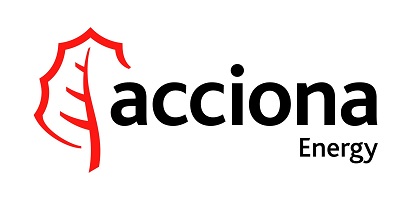
Another thing that makes this osmosis desalination company interesting is its dividend policy. The company has a dividend yield of 2.70% and has increased its dividend for years.
Its main desalination projects are in the Middle East and North Africa, but it is also expanding into India, Southeast Asia, and Latin America.
Overall, Acciona is a well-diversified company that has been in the desalination business for many years. It has a strong dividend policy and is expanding its operations into new regions.
What Is Desalination?
Also known as desalinization, desalination is the process of purifying seawater into drinking water. Desalination plants usually rely on two technologies or methods to achieve this: reverse osmosis desalination and thermal desalination.
In reverse osmosis technology, high-pressure pumps force water through a membrane to allow the salt and some contaminants to be removed from the resulting fresh water.
In multi-stage flash distillation (thermal), seawater is heated in chambers under low pressure, allowing pure steam (water vapor) to pass into a separate chamber where it is collected as distilled water.
Both of these industrial wastewater desalination solutions are solid options for producing fresh drinking water, but they do require a lot of energy. Also, water is lost in the desalination process — it isn’t an even trade.
Between the two, reverse osmosis desalination technology is more common. In general, it’s less energy intensive. However, new developments in solar technology could turn the tides in favor of thermal solutions.
More on the Desalination Solution…
The desalination process essentially takes a standard ion exchange water softener to produce fresh drinking water from saltwater.
The result is that you can clean the very same high-capacity resin in your ion exchanger with twice as much brine (saltwater) and get double the amount of fresh, drinkable, clean water.
In turn, desalination becomes an obvious solution to one of the pressing humanitarian problems: water scarcity, which affects about two-thirds of the global population.
Water global shortage occurs because of booming population growth, severe drought, and a lack of fresh water, often exacerbated by inefficient water management and distribution systems.

Desalination Stocks: Technology and Its Impact on the Environment
Desalination is a fairly energy-intense process and tends to have a high price tag associated with it.
While costs have come down in recent years, many third world nations still can’t afford the technology. Additional work is needed from desalination companies to create viable options for these regions.
Other parts of the world, such as the Middle East, rely on desalination for the vast majority of their drinkable water supply. There’s even a demand for desalination on coastal states like Florida and California.
It’s easy to see how an accessible, clean source of water can boost public health and morale. Having been to many developing countries, it breaks my heart to see sickness and other ill effects caused by poor quality water sources.
Unfortunately, removing salt from water can adversely affect the environment by disrupting natural habitats and redirecting water flows. The best desalination stocks are working hard to combat this issue.
Many of these companies can recycle water and generate hydroelectricity from the desalination process. Desalination stocks provide opportunities for employment in places where they’re actively deployed.
The push for greener alternatives isn’t lost on water desalination stocks, either. New and innovative technologies should incorporate methods to preserve our planet for future generations.
The World’s Biggest Desalination Plants
At the time of writing, the world’s biggest desalination plant is the run by the Saline Water Conversion Corporation in Saudi Arabia. The Ras Alkhair Power and Desalination Plant produces more than one million cubic meters of water per day and accounts for roughly 20% of the world’s supply.
The Ashkelon Desalination Plant in Israel is the oldest reverse osmosis plant of its kind. It pumps out more than 200,000 cubic meters of water per day and has been in operation since 1999.
Facilities in the United Arab Emirates are quickly rising to the challenge of givings its populace drinkable water. The Taweelah Desalination Plant is able to create 100,000 cubic meters of fresh water per day using just 1.5 square kilometers of sea space.
The United States has some impressive operations as well. Our largest is the Carlsbad Desalination Plant in California that generates some 60,000 cubic meters daily.
All of the above are clear leaders in the industry. While many of these would likely be excellent desalination stocks, the companies remain private or trade on exchanges outside the U.S.
It’s likely we’ll see many more water desalination stocks spring up in the near future as the world’s population continues to grow.
Is Water Desalination a Good Investment?
Desalination stocks could be a good investment if you’re looking for shares in a stable market.
For investors, this means that these stocks are unique because their demand will only increase over time as population figures keep rising exponentially.
These stocks also make great dividend stocks since they often have long-term agreements with municipalities that require them to meet a certain amount of capacity, usually set at around 85% or higher.
This is to ensure that the municipality can rely on the desalination plant to produce water at a fairly high rate if something happens.
The expansion potential of these stocks is also high, with most companies often building new desalination plants and using older ones as regional hubs for water distribution.
Water desalination plants are also built to last for decades, with a long life cycle.
Stability, dividends, and long company life could make water desalination stocks an attractive investment option.
With the demand for freshwater rising with every passing day, these shares could offer investors a way to bridge their portfolios to impressive returns in the not-so-distant future.
Still, you should do your own due diligence before picking up any desalination stocks, including the ones on our list.
Best Desalination Stocks: Final Thoughts
Although 75% of the earth is water, less than 2% is fresh water. As the population increases and climate change worsens, the already scarce resource becomes even more finite.
Desalination technology is not new, but it remains one of the most cost-effective solutions to global water insecurity.
Water Desalination Stocks FAQ
How Can I Invest in Water?
There are different ways to invest in water. One way is to invest in water mutual funds, which are portfolios of water-related stocks. You can also invest in water utilities, waste treatment plants, desalination plants, etc.
Are Water Stocks Safe?
Water stocks are generally considered to be safe investments, but no investment is truly safe. Still, many do view water as a safe investment because it is an essential resource that will always be in demand. Additionally, diminishing water supplies will likely lead to an increase in the cost of water. Companies positioned to meet growing demands could see steady growth.
What Are the Best Desalination Stocks to Invest In?
The best desalination stocks represent companies that have the experience, infrastructure, and technology to consistently produce clean water. Some of the best stocks include Veolia Environnement (NASDAQ: VEOEY), American Water Works (NYSE: AWK), and Energy Recovery Inc. (NASDAQ: ERII).


 Tags:
Tags:










